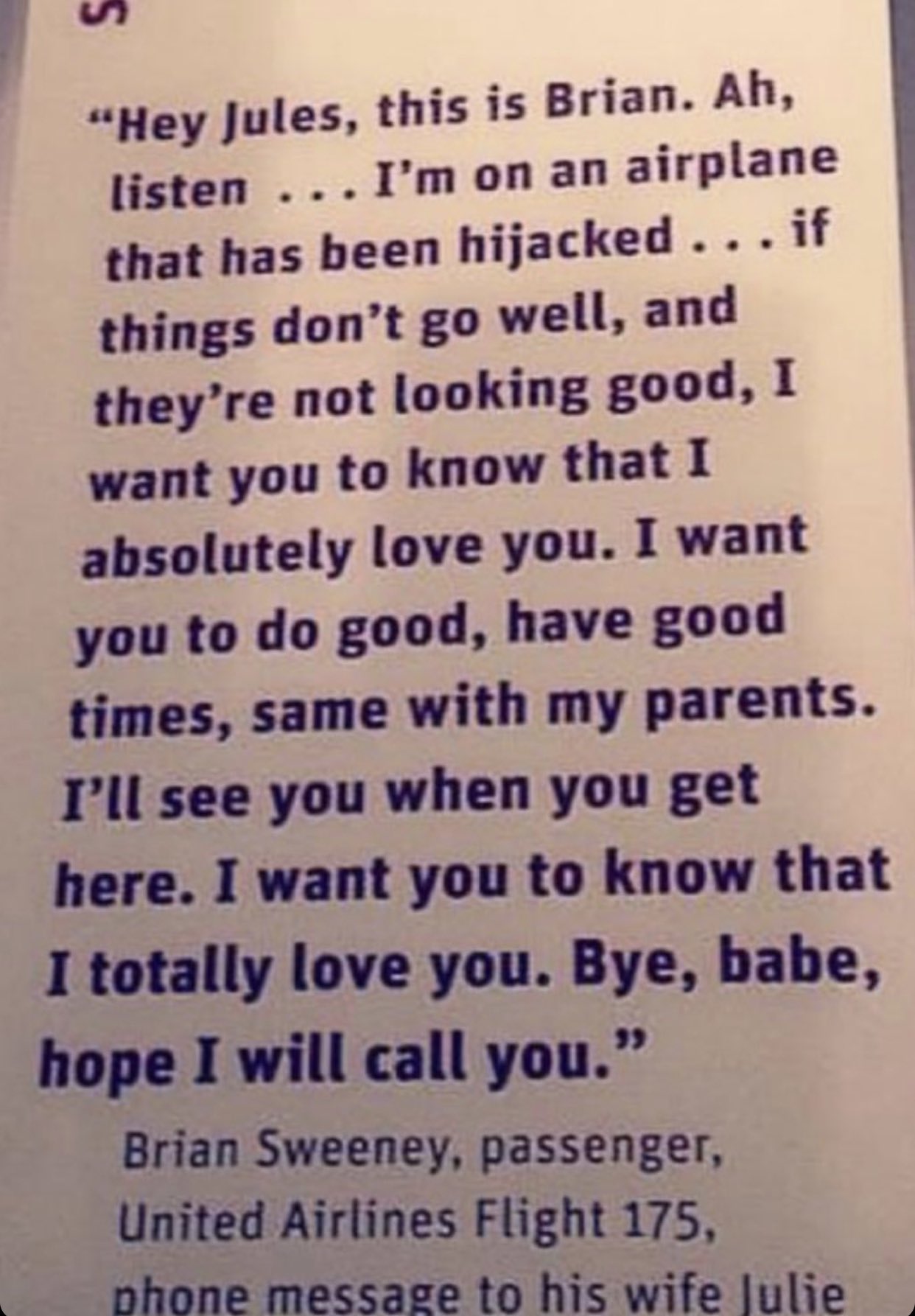On the anniversary today, I was struck by the voice message from Brian Sweeney to his wife Julie, recorded just a few minutes before his plane hit one of the towers:

What do you do when you know you’re about to die? It’s not just a question for people in terrible situations, as Brian found himself that morning. It’s a question any of us could grapple with at any time in our lives — and probably should.
As Katy Butler wrote in the San Francisco Chronicle in an op-ed earlier this year on preparing for the end of life, “[h]ospice nurses often list five emotional tasks for the end of life: thank you, I love you, please forgive me, I forgive you, and goodbye.”
Brian amazingly took care of about three of those tasks in his last message to Julie, who has since remarried and had two children.
Butler goes on to observe the following, a lesson that 9/11 and people like Brian can also teach us:
Over the years, I’ve learned one thing: Those who contemplate their aging, vulnerability and mortality often live better lives and experience better deaths than those who don’t.
A tragedy like 9/11 gives us an opportunity to reflect not just on death, but on how we want to live our lives while we have them. It’s part of the legacy we can draw from 9/11; a lesson to learn.


